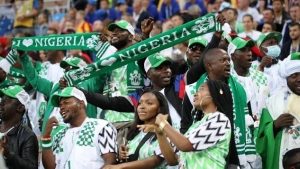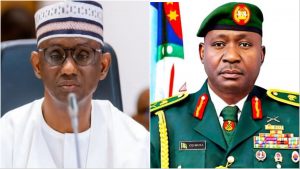‘It’s a tragedy we are witnessing.’ How Putin killed off Russia’s free press

Seated at the news desk, general director and co-founder Natalia Sindeeva — a tough-as-nails media entrepreneur — announced the channel was closing, took a breath, and said, “We need strength to exhale and understand how to work further. We very much hope to return to the air, and we will continue our work.”The station was already officially blocked by Russia’s regulators but had, until now, continued to broadcast via YouTube. The image on the screen cut to a gallery view of staff joining a Zoom call from different locations. In the studio, other staff crowded around the news desk behind Sindeeva.One young man stepped forward. “We all feel such pain and we’re afraid,” he said. “We are crazy scared! And I know many of you are afraid right now, but a coward is a person who gives in to fear. “We’ve lost this fight but sometimes in a fight you have to step back. And I think right now we’ve made the right decision to keep the most treasured thing we have. It’s our life, it’s our duty. They tried to call us the worst names ever, to blame us for some imaginary crimes, but why do we need to be afraid of the new law about ‘fakes?’ We tell the truth here on TV Rain.”TV Rain’s final broadcast ended with Sindeeva saying “no to war” as everyone walked off the set. The word “war” was a violation of a new law that forbids media operating in Russia to use the words “war,” “attack” or “invasion” to describe President Vladimir Putin’s decision to unleash his forces against Ukraine. Instead they are to use the Kremlin’s Orwellian phrase, “special military operation.” The expression “no to war!” has become the rallying cry of Russians who risk sometimes brutal arrest to protest on the streets of cities across the country, often carrying signs with those same three words. As TV Rain employees filed out of the studio, the channel began broadcasting black and white film of Tchaikovsky’s ballet “Swan Lake,” just as Soviet TV did during the 1991 coup against President Mikhail Gorbachev, the death of Soviet Premier Leonid Brezhnev, and at other destabilizing moments, playing the ballet over and over again on television.TV Rain has been in the Kremlin’s crosshairs for years. In 2014, it conducted an online survey asking viewers whether, during World War II, the Soviet government should have let Leningrad surrender to the Germans in order to avoid the roughly one million deaths that resulted from the Nazi blockade of the city. Putin’s parents survived the Leningrad blockade and his government was furious that such a sacred demonstration of bravery was being questioned. Cable operators dumped TV Rain’s broadcasts, leading to a major loss of revenue.Discussions like Dud and Akunin’s would have been tough but permissible before the invasion but they are now unthinkable. Just days after Putin launched his invasion of Ukraine, Russia’s federal internet regulator blocked Twitter, and Apple and Google’s app stores. Russian websites of the BBC, Germany’s Deutsche Welle, Meduza, as well as several US- funded websites were also blocked. The same day, the Russian Parliament passed a law declaring it illegal to spread “false information” about Russia’s military, with violations punishable with up to 15 years in prison. Fishman is still trying to understand how his world was transformed in just a week. But he is sure of one thing: Putin has “destroyed professional journalism, eliminated it.” “It’s the kind of transformation that Russia went through in 1917 (the Bolshevik Revolution), something like that,” he said. “The scale of transformation is absolutely unprecedented…it’s a tragedy. It’s a tragedy that we are witnessing. It’s like historic tragedy. It’s epic.”







